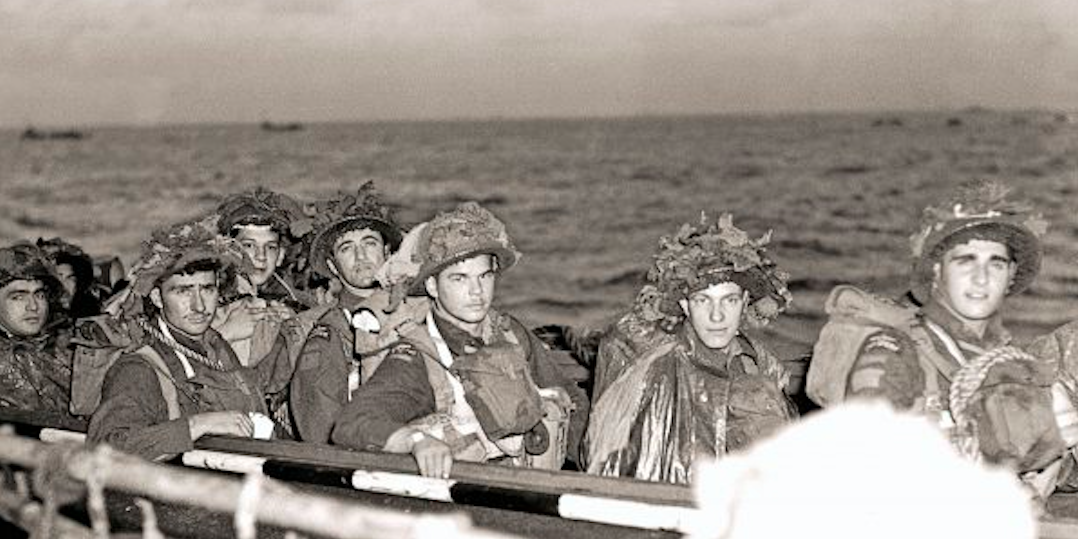CHARLOTTETOWN, P.E.I. – It took a long time for word of the outbreak of war in Europe to reach this isolated island in the North Atlantic.
I speak, lest there be a misunderstanding about current events, of Alberta Premier Danielle Smith’s revelation on June 6 that World War II began on the same date in 1944.
“On this day, June 6, we remember the bravery and sacrifice of Canadian and Allied troops who landed on Normandy beaches 79 years ago, marking the beginning of the Second World War,” Smith tweeted.
“We pay tribute to their heroic efforts on the anniversary of D-Day,” she blithely concluded her tweet.
This must have come as a surprise to any surviving World War II veterans who use social media.
After all, most Canadian servicemen would have been quite busy from September 1939 onward, preparing for and participating in the grim and deadly task of sweeping Adolf Hitler and his odious empire from Europe.
It would also be something of a puzzler to those who credit Germany in general and its leader at the time in particular with starting the war – the proximate cause being the invasion of Poland – as all but the most revisionist of revisionist historians do.
September 1, 1939, was the day Hitler’s army invaded Poland. That is why, in case you missed that particular history class – as Smith or whatever apparatchik does her tweeting for her apparently did – it is generally recognized as the day the war began.
However, if you want to be argumentative about it, you could argue Britain and France didn’t declare war on Germany until September 3, and that Canada waited until September 10 to give Parliament an opportunity to debate the matter, although the result of the vote was pretty much a foregone conclusion by that point.
If D-Day had been the beginning of the war, of course, then we would have started it, wouldn’t we? In which case, the actors in that famous “Are We the Baddies” video skit might have been wearing different uniforms than they do.
Regardless, the tweet was corrected within a short time with the reference to the beginning of World War II deleted. I am sure Smith and her minions would prefer that we would just drop the matter and save them the trouble of arguing the error was made by a flunky or that Smith (or whoever) intended to say June 6 was the beginning of the end of World War II.
To the first point, it is a principle of Parliamentary government – much honoured nowadays in the breach – that ministers are responsible for the errors of their subordinates. So while a social media post gone awry is hardly a matter for resignation, it is nevertheless the premier’s responsibility.
One could argue the scandal wasn’t the error – mistakes do happen, after all – so much as the fact no one noticed before the statement was published. Who is running the Premier’s Office, frat boys and Fraser Institute propagandists?
As for the beginning-of-the-end argument, that would be wrong too.
While there is no question the Western allies’ invasion of continental Europe was an extremely significant step in the process of bringing the war to an end, it ignores the struggle in the east by the Soviets, who, whatever may be ideologically correct thinking today, paid much of the freight when it came to bringing World War II to an end.
A more reasonable date to assign to the beginning of the end of World War II would be February 2, 1943. Indeed, the day the Germans at Stalingrad went to the Soviets to negotiate surrender terms is nearly universally regarded by military historians as the day the tide turned in the European theatre of the war.
The Red Army’s crushing defeat of the Germans at Stalingrad, the river city in southern Russia, was the deadliest battle of the war. After the destruction of the six field armies of Army Group B, the Red Army had purchased its ticket all the way to Berlin.
As 156,000 Canadian, British, American and other Allied soldiers went ashore on June 6, 1944, the Germans were being pushed backward in the east by six million soldiers of the Red Army, who inflicted about 80 per cent of the German Army’s casualties, cleared the Wehrmacht from Eastern Europe, and opened the road to Berlin.
These are historical facts, not the conclusion of some UCP social media manager (or, God help us, its leader) who watched a Hollywood movie or two.
Which brings us to another important issue illustrated by this seemingly silly error, perhaps the most important one, the recent tendency of Canadian governments and political parties of all stripes, not just Conservative ones, to practice militarism while ignoring military history.
This is dangerous for what should be obvious reasons.
People who advocate war, as our politicians so often do, would benefit from knowing a few basic facts about what has actually happened in some of them.



